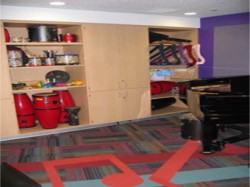“Ask Cathy… An Open Dialogue with a Mother and Special Needs Architect”
Q: My daughter on the spectrum is 14 and attends public school. She has an IEP (Individualized Education Plan) which provides her support each day. The school team is beginning to discuss transition. I’m not really clear about this process. Can you advise me about your experience?
A: Transition is a requirement of the federal IDEA Act (Individuals with Disabilities Education Act) and must begin by or before the student is 16. This addresses your child’s needs to either be on diploma track or certificate bound. Different states call this by different names but fundamentally, the team begins to focus on the specific transition requirements for your child to adulthood. A child with special needs can remain in school until age 21 or 22 depending upon the state as long as he or she still requires supports and cannot pass diploma requirements. During these transition years, educators may focus on life, social and vocational skills to help prepare your child for inclusion into the community. It’s beneficial to allow several years to prepare our kids for transition out of the school system and, ideally, into employment and independence at the highest level possible.
Q: How did you and your spouse handle the pressures of raising a family that included a child on the autism spectrum?
A: I can honestly say it was very difficult. My method of maintaining a marriage that just celebrated 37 years may not be right for others though I will share some brief insight into our journey. I’m very much a driven type-A personality. My husband is not. I had tremendous patience thanks to my mom. My husband did not. I knew I had to handle the really tough parts without complaint in an effort to protect my husband and my other children as best I could from the difficult times. If Matthew was throwing one of his many “fits”, I would step in to shoulder the stress. This did two things. It somewhat protected the rest of my family and it made me stronger. Over time, it became clear that my husband handled many of the needs of the other children well while I handled Matthew well. That was our “split” for contributing to the family when the kids were younger. Now that they are adults, my husband is very involved with Matthew. Raising three kids in general is already challenging. I’m known to say, “The difference between raising two and three children is huge.” It’s made even more challenging when one of the children is on the autism spectrum. Look at each spouse’s strengths to divide and conquer.
Q: I have three young children with one on the autism spectrum. Do you have words of wisdom regarding the holidays which will be here before we know it?
A: I absolutely do! When my three children were young, my son on the spectrum literally opened all of his siblings’ wrapped presents that were under the tree before Christmas day. His younger brother was incredibly disappointed and angry. From that day for ward until they were adults, I never put any wrapped presents under the tree until Christmas Eve after the children were asleep. I also hid all the presents in the attic so that my son could not get to them. My second lesson was not to allow the day to be ruled by my oldest son’s behaviors if he acted out. Christmas, Hanukkah, or whatever holiday families celebrate—are significant for all of our children. It’s important to remember the siblings especially on these holidays. We often don’t realize that so much attention is taken away from our other children when we are in the journey of raising our children on the spectrum.
READ WEB VERSION Found in Autism File Magazine, Issue 77, Oct-Nov 2017



